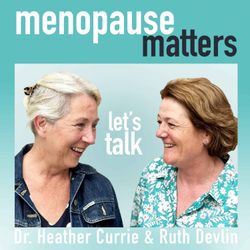Latest episode
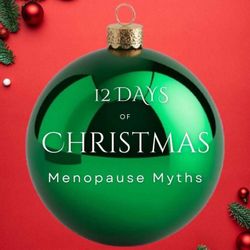
12. Xmas Myth #12: Menopause is the same for all women?
01:43||Season 6, Ep. 12The last of our 12 mini podcasts, debunking 12 menopause myths in the countdown to Christmas is:Women experience menopause in the same way.
More episodes
View all episodes
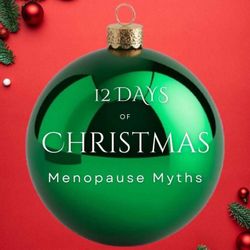
11. Xmas Myth #11: Testosterone?
01:10||Season 6, Ep. 11The eleventh of our 12 mini podcasts, debunking 12 menopause myths in the countdown to Christmas is:Testosterone is the missing piece of the jigsaw puzzle when it comes to HRT.Links:Testosterone. The Role of Testosterone and HRT : Menopause Matters and Testosterone… what you really need to know! - Menopause Matters, Let’s Talk | Acast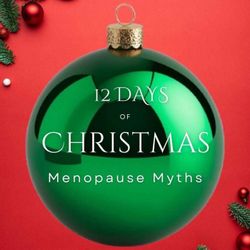
10. Xmas Myth #10: HRT is expensive?
01:24||Season 6, Ep. 10The tenth of our 12 mini podcasts, debunking 12 menopause myths in the countdown to Christmas is:HRT is expensive.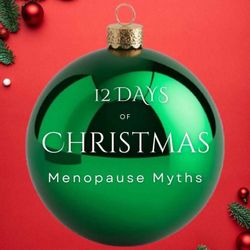
Xmas Myth #9: Either HRT or alternative?
01:30|The ninth of our 12 mini podcasts, debunking 12 menopause myths in the countdown to Christmas is:You have to choose either a complementary therapy, or an alternative option or HRT.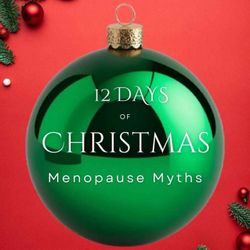
8. Xmas Myth #8: Pregnancy?
01:10||Season 6, Ep. 8The eighth of our 12 mini podcasts, debunking 12 menopause myths in the countdown to Christmas is:You can’t get pregnant if you’re taking HRT.Link: Contraception for older women before menopause : Menopause Matters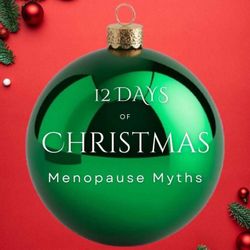
7. Xmas Myth #7: HRT info has all changed?
01:24||Season 6, Ep. 7The seventh of our 12 mini podcasts, debunking 12 menopause myths in the countdown to Christmas is:Everything is new with menopause, in particular HRT these days. It’s all changed.Links:27-WHC-FACTSHEET-HRT-Doses-NOV2022-A.pdf and The basics about HRT and much more. - Menopause Matters, Let’s Talk | Acast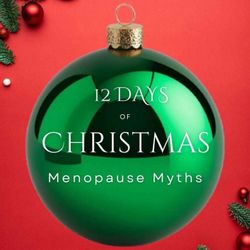
6. Xmas Myth #6: Is it the end of a good sexlife?
02:15||Season 6, Ep. 6The sixth of our 12 mini podcasts, debunking 12 menopause myths in the countdown to Christmas is:Menopause marks the end of a good sex life.Link:https://www.nhsinform.scot/healthy-living/womens-health/later-years-around-50-years-and-over/menopause-and-post-menopause-health/sexual-wellbeing-intimacy-and-menopause
